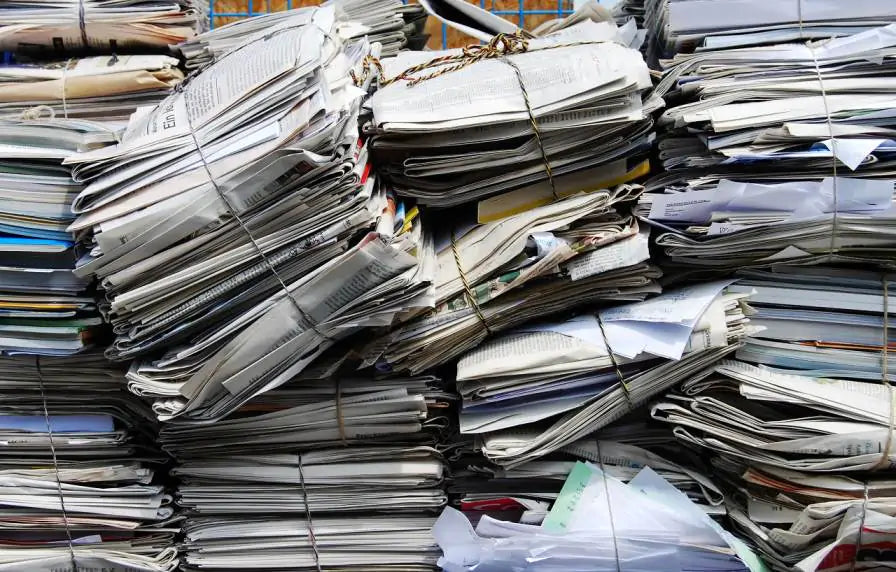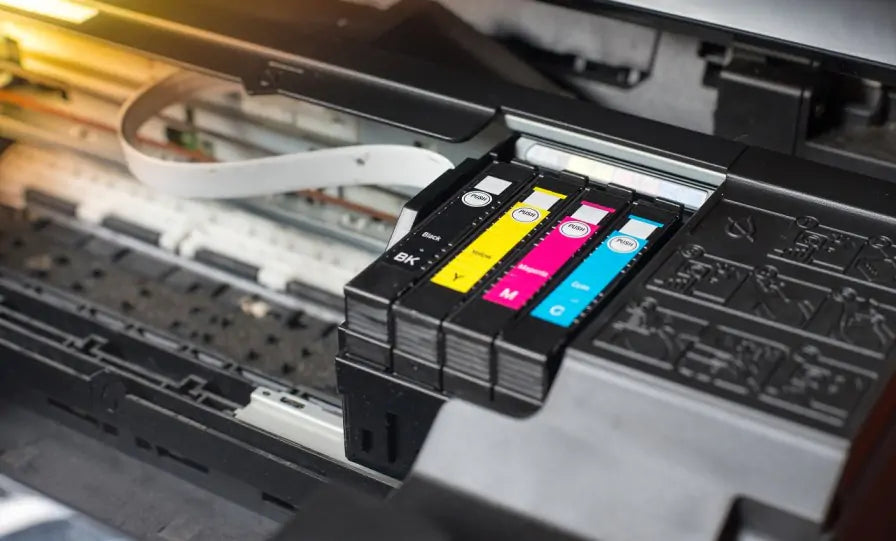Your basket is currently empty.
Shop NowRecycling Tips for the Office, Home and School

Recycling Tips for the Office, Home and School
As we move further into the 21st century, the importance of recycling is becoming ever more paramount. An ever increasing world population, along with an increase in consumerism and product packaging that is not biodegradable are just some of the reasons that the amount of waste we create is rapidly escalating. This in turn is having detrimental effects on our environment, with harmful chemicals and greenhouse gasses being released from ever growing landfill sites, and natural habitats being destroyed due to the need to exploit more and more raw materials.
Recycling is one of the best and easiest ways to prevent excess waste and the destruction of the environment. It is a vital component of what is known as the 'three Rs', three key steps to manage waste effectively, conserving our environment and its resources:
Reduce the amount of waste you create, only buy and use what you need
Reuse where possible. Many items can be used again, for the same thing or for a different purpose
Recycle as much as you can
Recycling is an activity that we should all have some involvement in. To conserve the environment for future generations, it is important that we don't just recycle at home, but at work and school as well. This approach will ensure less waste being sent to landfill, vital resources are maintained and future generations will grow up with a healthy respect for the environment. Here are some effective and easy to implement recycling tips for the office, the home and school:

Office Recycling Tips
Recycling in the office isn't just good for the environment, it's good for your business too. Recycling schemes are easy to set-up and run, create a positive feel-good factor in the office,reduce office clutter and save space. Last, but not least, it is extremely cost-effective and can save your business money. Here are 5 ways to recycle effectively in the office:
Paper
Studies suggest that that the average office worker uses 10,000 sheets of paper per year. This equates to each office worker using one 25m pine tree per year in paper. Considering the amount of office workers in the UK, this is a HUGE amount. The more offices can do to recycle as much of this paper as possible would have a significant environmental impact. By placing bins for white paper and mixed paper (magazines, envelopes etc.) throughout the office, you can ensure that all waste paper is recycled effectively. If any of your waste paper contains confidential details, it is essential that these are shredded before being placed into a recycling bin, or that you use a specialist confidential waste service to dispose of these potentially sensitive documents. Another option is to aim for a completely paperless office. More and more business's these days are using online document management systems, replacing their paper files with online versions. Although there may be a large cost to implement, this could be very cost-effective over a number of years, not to mention far easier access to the archived information.
Printer Cartridges
Printer cartridges are one of easiest things to recycle in the office. There are several ways to do this. Instead of buying a new cartridge each time and old one runs out, most cartridges can simply be refilled with suitable ink, which as well as being environmentally friendly, can result in significant cost savings. Cartridges can usually be reused like this several times before they have to finally be thrown away. Another option is to buy used cartridges that have been refilled already. This is may be slightly more expensive, but saves any potential mess in the refilling process. Thirdly, if you do have to buy a new cartridge, you can often send your old cartridge to be recycled by the manufacturer, offsetting some of the environmental impact of having to buy a new one.

Food packaging
In the busy modern office, many workers choose to take their lunch at their desk. By placing separate bins in the office for general waste, cans, plastic and glass, these materials can be recycled, reducing your office's carbon footprint. Such bins, as well as offering the opportunity for people to recycle their rubbish, also serve another purpose. Their very presence can bring the subject of recycling to their attention, and make them aware of their potential impact on the environment. Quite often, this will see people stop eating food out of throwaway plastic packaging, preferring instead to bring food in reusable Tupperware containers.
Electrical Equipment
In the modern office, it's important that you keep up with the latest technology. This means that there can be a significant amount of electrical items thrown away each year, which could actually have been recycled. There are schemes in every part of the country in which you can safely dispose of unwanted electrical equipment which can then be recycled, once again reducing your carbon footprint. Other schemes also exist in which older but working computer equipment can be donated to charities who may send them to schools in the third world. This not only has a good environmental benefit, but also a big social benefit too for the children whose lives and education could be transformed with access to such technology.
Home Recycling Tips
Recycling in the home has come a long way in the last 15 years. Long gone for most are the simple black bin bags full of rubbish, we now live in an age where nearly all of us share a home with a variety of wheelie bins and brightly coloured recycling sacks and boxes. Recycling has become a regular fixture in our lives, and here are some simple tips to increase the amount of recycling you do at home.
Bins
Instead of having just one bin in the house, the most efficient way of recycling is to have several bins that reflect the wheelie bins, boxes and sacks you put out for recycling. This means you may have separate bins for glass, plastics and metal, enabling you to quickly empty these into the relevant wheelie bin, box or sack.
Packaging
Lots of items in the supermarket come in far too much packaging than is necessary. Fruit and vegetables for example can be bought much cheaper loose, with the added benefit that excess packaging is not adding to landfill. You may choose to use products which use recycled packaging, and of course, always remember once you have used your item, to recycle it at home in the appropriate bin. Another simple tip regarding a type of packaging is shopping bags. Just by simply taking your own bags to the supermarket each time you go shopping could result in hundreds of environmentally unfriendly plastic bags not going into landfill every year.
Compost
Did you know that over half the food waste in your bin could probably be composted? Composting at home is a natural process that transforms the waste from your kitchen and garden into rich nutritious food for your garden. It is also much more environmentally friendly than sending food to landfill and your garden will love it.
Recycle your old mobile phone
Many people want to stay up-to-date with the latest technology, which results in a lot of items such as phones being thrown away on a regular basis. Recycling your old mobile with a suitable provider has two benefits. Firstly, you will be reducing landfill, and helping to preserve the environment. Secondly, you will receive some money for it, which creates a win-win situation for everyone involved.
Why not have a look at our 10 easy ways to start recycling for more great idea

School Recycling Tips
There are lots of opportunities for recycling in schools, and many of them also offer key benefits to the pupils, as well as being beneficial for the natural environment. As well as the environmental benefits of recycling, there are educational benefits too. The need for recycling can teach children the fragility of the natural environment, and the need to conserve and protect it. The actual acts of recycling too can provide key teaching opportunities, composting can portray key scientific principles, and recycling metal can teach children about natural resources and their uses.
Paper
Like offices, there is a huge amount of paper used in schools. Having separate bins for white paper and mixed paper (coloured paper, envelopes, magazines etc.) is a great idea and can also be used by teachers to begin to get kids thinking about recycling and what happens to our waste. Some schools give pupils special responsibility as 'paper monitors' to help run the school's paper recycling scheme.
Metal recycling
More and more schools now have vending machines, and associated with this can be an increase in waste, such as drinks cans. By placing recycling bins for cans next to vending machines, cans can be recycled. There may be added benefits, especially if there is a 'cash for cans' type of scheme in your area, this waste becoming a valuable source of income.

Composting
Composting is a great way of learning all about nature and the benefits of recycling, whilst also minimising the amount of organic waste that the school produces going to landfill. Composting is a great tool for teaching because kids love to get their hands dirty, and practical lessons are always much more interesting. As well as the environmental and educational benefits, using the compost in the school grounds will some careful planting will also create pleasant surroundings for the children to enjoy.
Link with the community
The great thing about recycling is that its something that everyone can do, so there are lots of opportunities for schools to outreach to parents and the local community to spread the recycling message. Holding a recycling day can be great fun, and a great way to spread the message. Children can make displays of various types of recycling, and give demonstrations of how recycling can be of benefit to the environment.
Conclusion
Wherever you are, and however you recycle, you can be safe in the knowledge that every little bit you do has a positive impact on the environment. Just remember:: Reduce, reuse and recycle. You'll be amazed at how much waste you can prevent just by remembering those three simple words.


